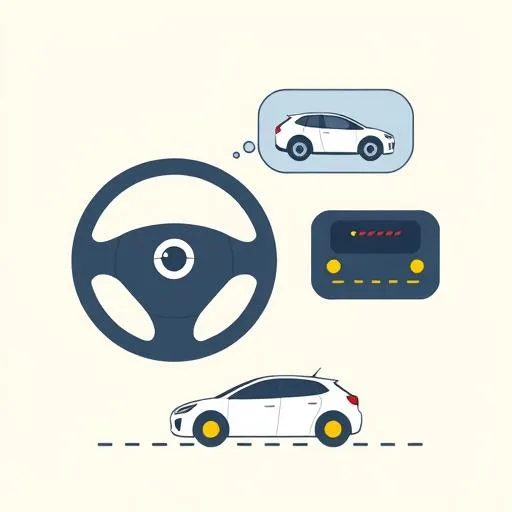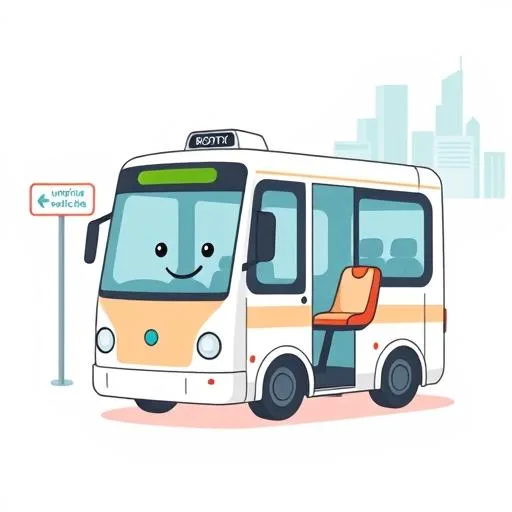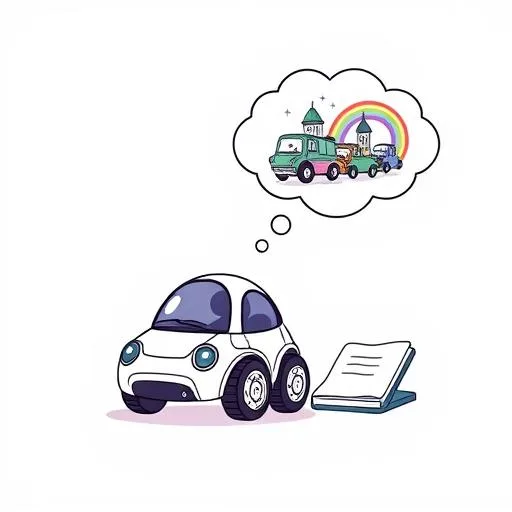
Ever been on a family road trip, snacks gone, playlist on repeat, wishing the car could drive itself? I know I have! Jelle Prins’s vision of hopping in an Amsterdam car and waking up in the mountains sounds like a dream. It’s the kind of magic that makes you think—not just about easier travel, but about the world our kids are growing up in. A world where the car might just be the smartest one in the family!
The Sci-Fi Dream vs. The 2025 Reality

That vision of a fully autonomous chariot whisking us away on epic adventures is SO exciting! Imagine, no more tired driving, no more navigating tricky city streets—just pure, quality family time. But before we start packing our bags for that magical overnight drive, it’s good to know where we actually are on the map. So, where does that leave us today?
Most of the advanced systems you hear about, like Tesla’s “Full Self-Driving,” are what experts call “Level 2.” Think of it like an incredibly talented helpful sidekick. It can handle a lot—keeping you in your lane, managing your speed in traffic—but you, the parent in the driver’s seat, are still the captain of the ship. Your hands might be off the wheel for a moment, but your eyes and your brain have to be fully engaged. It’s there to help, not take over completely. Tesla is aiming to bring this to Europe in early 2025, but it’s a big step that needs everyone, especially regulators, to give it the green light. So, while the future is pulling into the driveway, it’s not quite ready to take the keys just yet.
What Safety & Privacy Questions Should Parents Ask?

Whenever we introduce something new to the family, whether it’s a new board game or a new tablet, the first question is always: is it safe? It’s just wired into our parent DNA! And when it comes to self-driving cars, that question is HUGE. A recent study highlighted that folks across Europe are asking the exact same things. We’re all wondering about safety, of course, but also about things like data privacy and whether our roads are even ready for these futuristic vehicles. It’s a massive conversation, and honestly, it’s one we need to be having.
Addressing these concerns is the most important part of this whole adventure. As the research points out, building trust is everything. We need to know that the technology is rock-solid and that our family’s privacy is protected. It’s not about putting up roadblocks; it’s about building a safe, reliable road for this technology to travel on. It’s a team effort, and knowing that these questions are being taken seriously makes me feel so much more hopeful about the journey ahead.
Could Robotaxis Arrive Before Family Cars?

Here’s something that absolutely blew my mind: the self-driving revolution might not even start in our personal garages! According to a World Economic Forum white paper, things like robotaxis and autonomous trucks are actually much closer to becoming a part of our daily lives. How amazing is that? We’re already seeing it happen! In Oslo, Norway, they’ve already launched a project with self-driving electric shuttles as part of the public transport system. It’s not science fiction—it’s happening right now!
This changes everything! It’s not just about making our own family trips easier. It’s about reimagining our communities. Imagine quieter cities, more efficient deliveries, and safe, on-demand rides for everyone. It could transform how our kids experience their neighborhoods, making them cleaner, safer, and more connected. This isn’t just a new feature for a car; it’s a potential upgrade for our entire way of life, and seeing cities like Oslo take the first bold steps is incredibly inspiring!
Preparing Kids for an Autonomous Future

So, with all this change speeding our way, what does it mean for our kids? It’s not about teaching a seven-year-old the mechanics of an autonomous vehicle, that’s for sure! It’s about nurturing the timeless skills that will help them thrive no matter what the future holds: curiosity, critical thinking, and adaptability.
Instead of worrying about the technology, we can get excited about the conversations it starts. What if we treated a self-driving car not as a replacement for our attention, but as a tool that frees us up for more connection? More time for eye-to-eye chats, for pointing out interesting things along the way, for a good old-fashioned game of “I Spy.” The technology can handle the driving, but we’re still in charge of the adventure, the laughter, and the memories.
Why not try this on your next walk or drive? Ask your little one: “If our car could talk, what do you think it would say?” or “If you could design a super-smart car, what amazing things would it do?” Their answers might just surprise you and open up a whole world of imagination.
Fostering that sense of wonder is the best way to prepare them for any road ahead, with or without a steering wheel.
Why the Journey Matters More Than the Destination

The road to a fully autonomous Europe is long, with plenty of curves and maybe a few detours. And that’s okay! It’s not a race. It’s a thoughtful journey of innovation, safety, and building trust. Seeing the careful steps being taken, from pilot projects in Norway to the important regulatory discussions, fills me with so much optimism.
For us parents, it’s a powerful reminder that while the world is changing at an incredible pace, our role remains the same: to guide our children with love, to spark their curiosity, and to enjoy the ride together.
The future of travel is exciting, but the best part will always be the people we’re sharing the journey with. And that’s a thought that truly warms the heart.
Source: Is Europe ready for self-driving cars?, The Next Web, 2025/09/09
